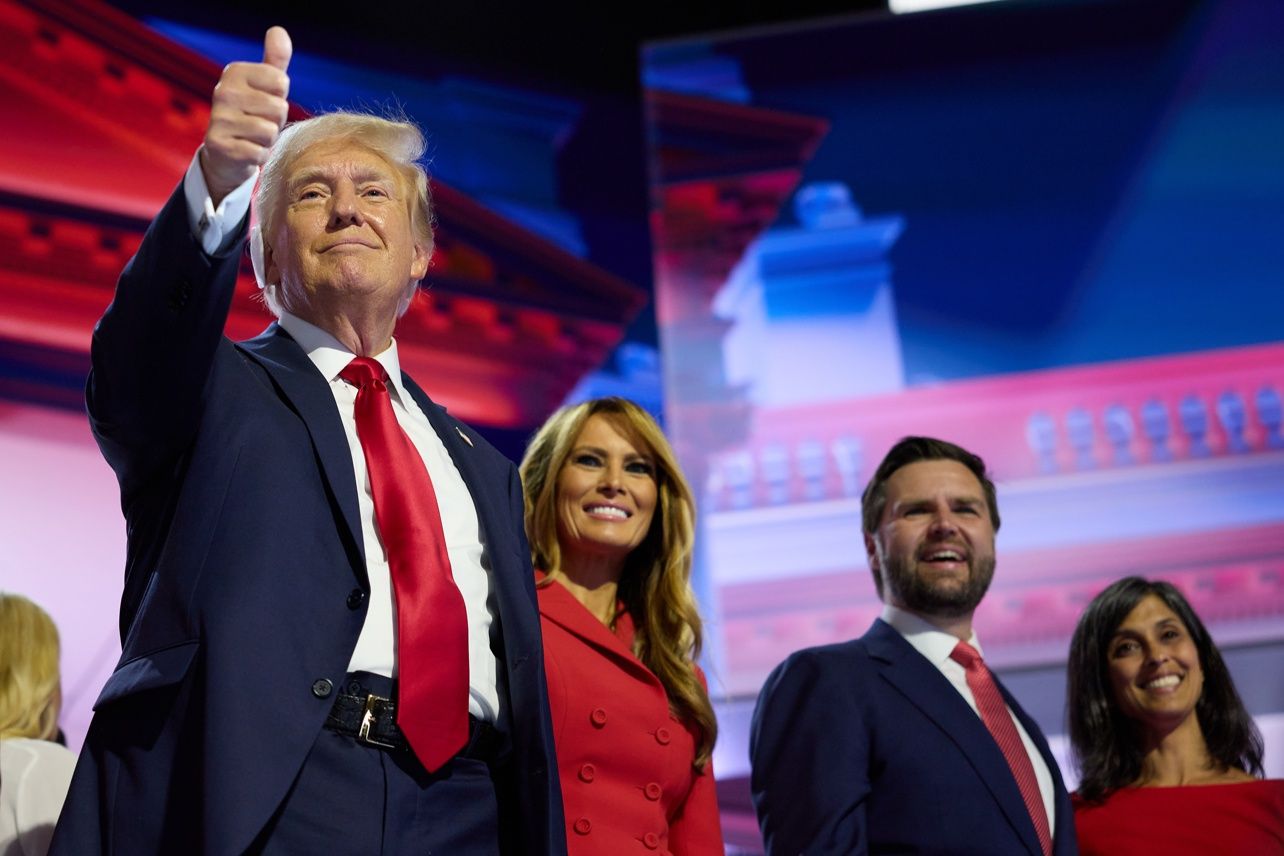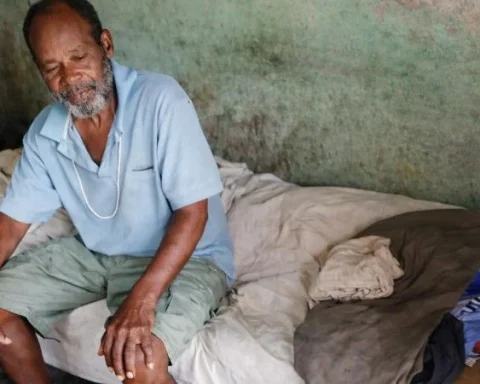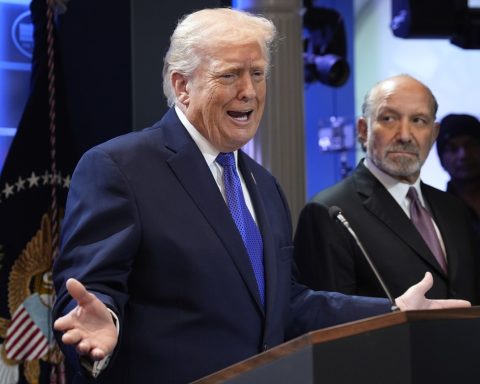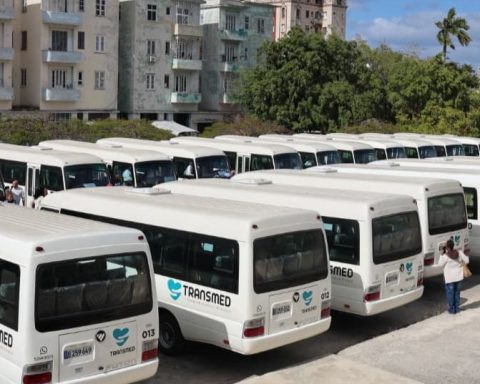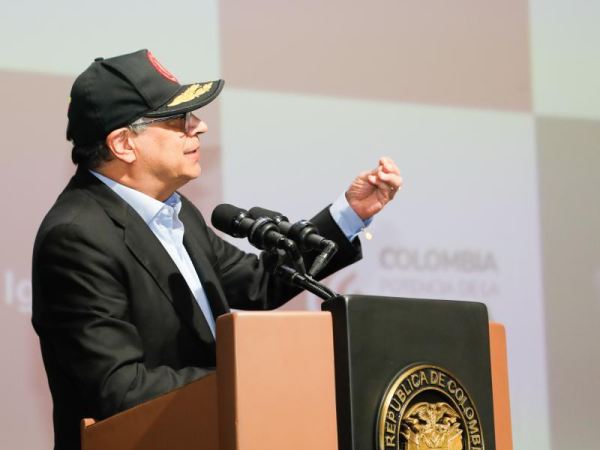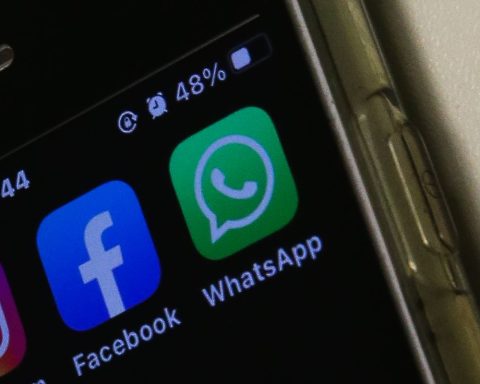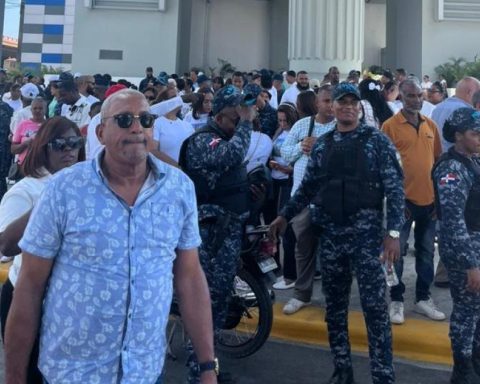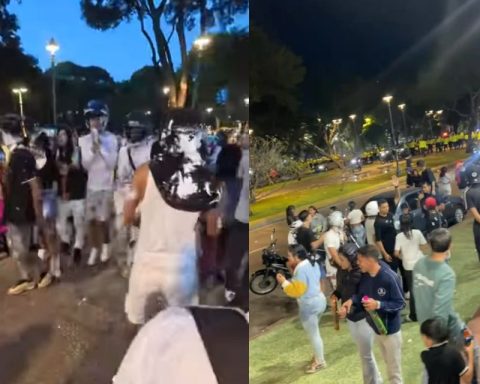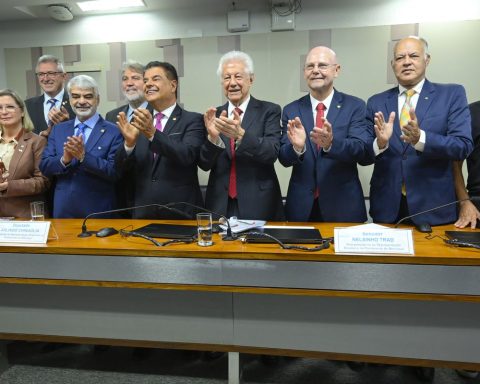Republican presidential candidate Donald Trump said Friday he had spoken by phone with Ukrainian President Volodymyr Zelensky, promising him that if he returns to the White House he will “end the war” between Ukraine and Russia.
“I, as your next President of the United States, will bring peace to the world and end the war that has claimed so many lives and devastated countless innocent families,” the former president wrote on his Truth Social platform.
“Both sides will be able to come together and negotiate a deal that will end the violence and pave the way for prosperity,” Trump added, distancing himself from his rival and current president, Joe Biden, who has so far been betting on a military solution to the conflict in Eastern Europe.
For his part, Zelensky admitted to the BBC that working with Donald Trump, if the former president wins the November elections, will be “hard work.”
Under the Democratic presidency, the United States has provided tens of billions of dollars in military assistance to kyiv since Russia launched its invasion of Ukraine in February 2022, but with a Trump victory in November, Washington’s support is not guaranteed.
According to the Kiel Institute for the World Economy in Germany, the Biden administration has sent a total of more than $76 billion in aid to Ukraine between February 24, 2022, the day the war began, and December 7, 2023.
“We agreed with President Trump to discuss at a personal meeting what steps can make peace fair and truly lasting,” Zelensky replied on the social network X.
“I have noted the vital bipartisan and bicameral support of the United States to protect the freedom and independence of our nation,” he added, stressing the decisive military and financial support from Washington, without which kyiv would not have been able to slow down the Russian offensive, as it has done so far.
In April, the Senate followed the House’s lead and approved $95 billion in appropriations for Ukraine, Israel and Taiwan, with $61 billion to be military aid to kyiv.
Following Trump’s trail
This is not the first time Trump has said that if he were to take office he would end the war in Eastern Europe very quickly, although, as part of his effusive rhetoric, he did not explain how he would do so.
At the recent Republican National Convention, the New York tycoon boasted that he could “stop wars with one phone call.”
I spoke with @realDonaldTrump to congratulate him on the Republican nomination and condemn the shocking assassination attempt in Pennsylvania. I wished him strength and absolute safety in the future.
I noted the vital bipartisan and bicameral American support for protecting our…
— Volodymyr Zelenskyy / Володимир Зеленський (@ZelenskyyUa) July 19, 2024
“I will end every single international crisis that the current administration has created, including the horrible war in Russia and Ukraine,” Trump said.
Last week, the former president welcomed Hungarian Prime Minister Viktor Orban to his Florida mansion, after Orban had earlier met with Russian President Vladimir Putin in the Kremlin.
A dispatch from the Swiss portal swissinfo.ch He said Trump’s frequent praise of Putin and his reluctance to openly condemn the Russian invasion have raised fears in the West that he could force Ukraine to accept partial defeat.
He has also repeatedly criticised NATO and suggested withdrawing from the alliance, saying that this would encourage Russia to attack any member that had failed to meet its financial obligations.
As if that were not enough, his running mate for the November presidential election, JD Vance, leads the isolationist wing among Republican congressmen who argue that the United States should suspend aid to Ukraine, making him one of the fiercest opponents of the $61 billion package.
Russian position
The Kremlin, for its part, said Putin has no plans for now to hold talks with Trump on peace in Ukraine.
In New York, however, Russian Foreign Minister Sergei Lavrov said Russia would be ready to work with any US president elected by the American people.
Speaking at the end of a UN Security Council meeting, Lavrov reaffirmed that Moscow does not interfere in the internal affairs of other states, “including the United States,” and that it advocates “equal and mutually respectful dialogue.”
